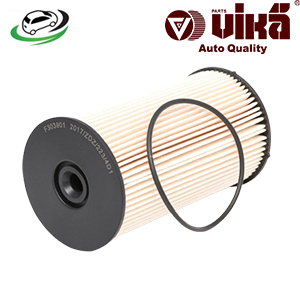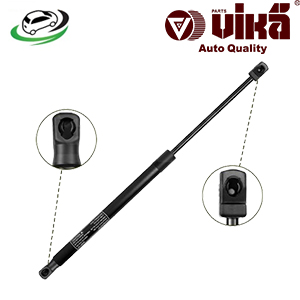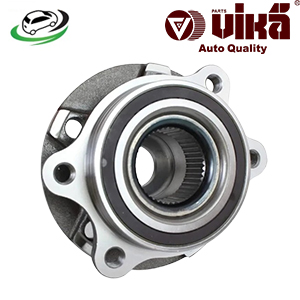-10%
Get Wheel Bearing Kit (Complete Hub) Audi A7/Audi B8 A4/Audi B8 A5/Audi B8 Allroad Quattro 2.0T/Audi B8 RS5/Audi B8 S4 4H0498625A
A wheel bearing kit is an essential component of a vehicle’s wheel assembly, responsible for ensuring smooth and efficient wheel rotation. This comprehensive guide will explore the function, types, benefits, maintenance, and common issues associated with wheel bearing kits.
Function of a Wheel Bearing Kit
Smooth Wheel Rotation
The primary function of a wheel bearing kit is to enable the wheels to rotate smoothly with minimal friction. Wheel bearings are designed to support the weight of the vehicle and facilitate the smooth rotation of the wheels.
Load Support
Wheel bearings support the radial and axial loads exerted on the wheels. Radial loads are due to the weight of the vehicle, while axial loads are caused by cornering forces. The bearings distribute these loads evenly, ensuring stable and safe wheel rotation.
Vibration and Noise Reduction
High-quality wheel bearings help reduce vibrations and noise generated by the wheel rotation. This contributes to a quieter and more comfortable driving experience.
Types of Wheel Bearings
- Ball Bearings
- Construction: Ball bearings use spherical balls to reduce friction and facilitate smooth wheel rotation.
- Advantages: They are versatile and can handle both radial and axial loads. They are commonly used in passenger vehicles.
- Disadvantages: They may not be suitable for heavy-duty applications due to their lower load-carrying capacity compared to other types of bearings.
- Roller Bearings
- Construction: Roller bearings use cylindrical rollers instead of balls to reduce friction.
- Advantages: They have a higher load-carrying capacity and are suitable for heavier vehicles and applications that require higher durability.
- Disadvantages: They are primarily designed for radial loads and may not handle axial loads as efficiently as ball bearings.
- Tapered Roller Bearings
- Construction: Tapered roller bearings use conical rollers positioned between inner and outer raceways that taper inward.
- Advantages: They can handle both radial and axial loads effectively and are commonly used in heavy-duty applications like trucks and SUVs.
- Disadvantages: They are more complex to install and may require precise adjustments for optimal performance.
- Hub Bearings
- Construction: Hub bearings are pre-assembled units that include the bearing, hub, and sometimes the ABS sensor.
- Advantages: They simplify installation and reduce the likelihood of improper installation. They are often used in modern vehicles.
- Disadvantages: They can be more expensive to replace as the entire unit must be replaced, even if only the bearing is worn.
Benefits of a High-Quality Wheel Bearing Kit
Improved Safety
High-quality wheel bearings ensure stable and secure wheel rotation, which is critical for safe vehicle operation. They help maintain proper wheel alignment and reduce the risk of wheel wobble or failure.
Enhanced Performance
Smooth and efficient wheel rotation enhances overall vehicle performance. It contributes to better handling, steering response, and braking efficiency.
Reduced Maintenance Costs
Durable and reliable wheel bearings reduce the need for frequent replacements and repairs, leading to lower maintenance costs over the vehicle’s lifespan.
Noise and Vibration Reduction
Quality wheel bearings reduce road noise and vibrations, resulting in a quieter and more comfortable driving experience. This is particularly important for long-distance driving and high-speed travel.
Increased Fuel Efficiency
Properly functioning wheel bearings reduce friction, which can improve fuel efficiency. This is because the engine doesn’t have to work as hard to overcome resistance caused by faulty bearings.
Maintenance of Wheel Bearing Kits
Regular Inspection
- Visual Checks: Periodically inspect wheel bearings for signs of wear, damage, or contamination. Look for grease leaks, rust, or debris around the bearing area.
- Listen for Noises: Pay attention to any unusual noises, such as humming, grinding, or clicking sounds, which may indicate a worn or damaged bearing.
Proper Lubrication
- Grease Application: Ensure that the wheel bearings are properly lubricated with the recommended type and amount of grease. Proper lubrication reduces friction and wear.
- Sealed Bearings: For sealed bearings, ensure that the seals are intact and not damaged. Sealed bearings are pre-lubricated and do not require additional lubrication.
Replacement Intervals
- Manufacturer’s Recommendations: Follow the manufacturer’s guidelines for wheel bearing replacement intervals, as specified in the vehicle’s owner’s manual.
- Signs of Wear: Replace wheel bearings if you notice signs of wear, such as increased noise, vibration, or difficulty in steering.
Addressing Issues Promptly
- Fix Contamination: If wheel bearings are contaminated with dirt, water, or debris, clean and re-lubricate them promptly to prevent damage.
- Tighten Bearings: Check and tighten any loose wheel bearing components or mounting hardware to maintain proper alignment and secure the bearings.
Common Issues with Wheel Bearing Kits
Wear and Tear
- Symptoms: Increased noise, vibrations, or a rough feeling while driving. The steering may feel loose or less responsive.
- Causes: Over time, wheel bearings can wear out due to constant friction and load. Poor lubrication or contamination can accelerate this process.
Contamination
- Symptoms: Grinding or rumbling noise, especially when turning. Visible debris or rust around the bearing area.
- Causes: Contamination can occur due to damaged seals, exposure to water, dirt, or road salt. This can lead to corrosion and premature bearing failure.
Improper Installation
- Symptoms: Uneven tire wear, steering issues, or abnormal noises shortly after bearing replacement.
- Causes: Incorrect installation, such as improper torque settings or misalignment, can cause the bearings to wear unevenly or fail prematurely.
Overloading
- Symptoms: Premature bearing failure, noise, and vibration, especially under load.
- Causes: Carrying loads beyond the vehicle’s capacity can put excessive stress on the wheel bearings, leading to faster wear and potential failure.
Follow us on Facebook for more parts.



